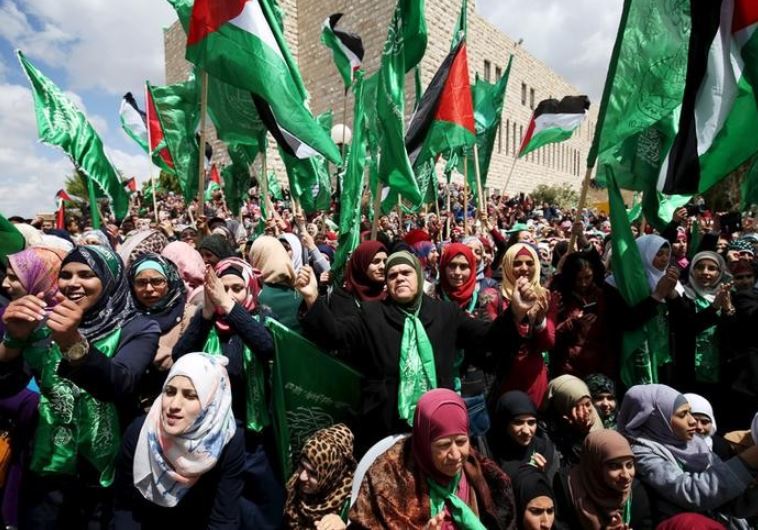We stand at a very dangerous and crucial crossing point at this moment. Do we move to Phase 2 of the ceasefire deal or does Israel renew the war and essentially sacrifice the remaining 63 hostages? The main difficulty for Israel is that Phase 2 includes the end of the war and the withdrawal of all Israeli forces from Gaza. But the war will not end if there are hostages remaining in Gaza. The war will not end if Hamas is left in control of Gaza. There are still those in Israel’s political leadership who continue to hold onto the fantasy that Hamas can be eliminated through military means. There are those in the right-wing who understand that Hamas won’t be eliminated through the military and that Hamas is here to stay, so, according to them, Israel needs to create a military government to control all of Gaza, remain in Gaza perhaps forever. Alongside this camp there are the real estaters inspired by Trump’s Gaza Riviera with dreams of beachside Israeli settlements (without Palestinian neighbours) and the much more delirious messianics inspired by the likes of Betzalel Smotrich who believe that they are the real estate agent of God on earth.
In a much wider view of our situation, the crossroads are actually a lot bigger and offers more opportunities, if we had any leaders with the wisdom to examine what is essentially right in front of us. The Gaza war has created a regional strategic environment that enables the first real opportunity for moving towards the resolution of the Israeli-Palestinian conflict since the last round of negotiations between Prime Minister Olmert and President Abbas. The chances of real change are much better today than at the time that Olmert tried to negotiate an end of the conflict. The basis for believing that there are higher chances of success now emanate from the weakening of the Iranian axis including the removal of the Assad regime in Syria, the weakening of the Hezbollah stranglehold over Lebanon and the weakening of Hamas in Gaza. Along with the changes within the Iranian Axis, we also have what is beginning to look like a much more unified Arab position, accelerated by the Trump danger of the ethnic cleansing of Gaza and the threat that is posed directly to the regimes of Jordan and Egypt from that. The firming up of the position of Saudi Arabia regarding the creation of a Palestinian state in the territories occupied by Israel in 1967 is now an Iron Wall standing between Israel’s burning desire for full normalization with Saudi Arabia and Mohammed ben Salman’s commitment for a Palestinian state that he has made very public to the whole world.
Of all of the issues on the agenda, the most urgent is to end the war in Gaza. That is the precondition for returning all of the hostage. It is also the only way that reconstruction of Gaza can begin which will require an enormous international effort and about 90 billion dollars. The two million homeless people of Gaza are the vivid reason why reconstruction cannot wait, even one day. But no real money or genuine planning for reconstruction will happen in Gaza without Israel withdrawing from Gaza and as long as Hamas remains in power – both in government and with their armed militia. Most of the Hamas leadership outside of Gaza seems to recognize this new reality, but the youngsters with the new uniforms, shiny guns and new vehicles that were untouched by all of the Israeli bombing are in the mood of “look at us – we’re in charge now!” and they may be becoming uncontrollable by the Hamas leaders sitting in their comfortable villas in Istanbul, Cairo and Doha. They are definitely a challenge, but in reality, if there are no more Israeli forces in Gaza, they lose their targets and there is very little that they can do – because without the money and the support, they cannot really control Gaza. This is a challenge that a new, legitimate Palestinian non-Hamas government in Gaza can tackle.
The main obstacles before us are the current triangle of leaders: Netanyahu – Abbas – Hamas, all who need to be sent packing if we want to see real positive change here. The weakest point of the triangle is Abbas. Abbas is 90 years old; he is in the 20th year of a four-year term of office and has almost no legitimacy amongst his own people. A large majority of Palestinians view him and his Palestinian Authority as corrupt and dictatorial. Abbas removed the legislative branch of government; he makes legislation by Presidential Decrees. He has appointed most of the judges. He controls the security forces and he controls the money. Civil society has been disempowered by means of control on registration and reporting together with a hyper-active security force. While Abbas continues the security coordination with Israel, which is viewed positively within Israel’s national security establishment, for the Palestinian people it makes the Abbas regime appear to be collaborators with the Israeli occupation and sometimes as employees of the Israeli settlers. Abbas’s disdain of Hamas has kept him in power for a long time with the support of Israel and some of the Arab leaders. It now seems that, at least many of the Arab leaders believe that Abbas needs to step aside and allow someone with credibility and abilities to take over the functions of government from him. But that person must be committed to the two states solution, to the unification of Palestinian government and territory, to the end of the armed struggle, to fighting corruption and to democracy. That is a hard list of demands for a new Palestinian leader who must continue to confront a hostile Israeli occupation and an Israeli government which seems intent on dismantling the Palestinian Authority. There are a couple of Palestinian candidates who could meet the demands of office that could lead the Palestinians to freedom and it is for the Palestinian people to decide who that leader is and to understand that they no longer really have an alternative Palestinian strategy that will lead to their freedom.
A new Palestinian leader who would have the courage to stand up and say to the Palestinian people that we as Palestinians have only one real choice if we want to survive as a nation – that is to recognize that Israel exists, that the Jewish people have a legitimate connection to the land between the River and the Sea, but that they must understand that they were never here alone. There have always been others in the land, and we Palestinians are the others. And we are equal in size to them. Our right, as Palestinians, is to have a nation-state of our own which is non-negotiable. We can negotiate borders, economics, water, security, and even on the future of Jerusalem, but our right for self-determination in a state of our own is not negotiable. If Palestinians were bold enough to also state that they are undertaking a full review of their educational system to reform it in a way which recognizes Israel as a neighbour that the Palestinian people desire to live in peace with, I believe we would see a rapid change of Israeli public opinion that would not only re-join the belief in the two-states solution, the public would also bring down the Netanyahu regime. The essential ingredient that keeps the Netanyahu regime in power is the deep belief in Israel that the Palestinian people will never agree to live in peace in a Palestinian state next to Israel, instead of in place of Israel. Of course, Palestinians have the same image of Israelis and if the world was fair, the stronger party would take the first step – but that is unlikely to happen. It seems that Israel is able to cope with the continuation of the conflict for many more years, which to me seems much longer than what the Palestinian people can allow themselves to do because they pay a much higher price in suffering than the Israeli people do. The urgency for change seems to be at a much higher degree for the Palestinians than for the Israelis. It is simply a matter of the asymmetric reality of this conflict.
Back to Gaza – an Israel agreement to end the war and to withdraw from Gaza will only come if President Trump insists on it. The importance of the unified Arab position on both the future of Gaza without Hamas and a Palestinian government committed to the two states solution should be the fuel needed to steer Trump into the direction of knowing that at the end of the road is the Noble Peace Prize and a place for Trump in history as the peacemaker of the Middle East. There are a lot of moving pieces here and the movement is already happening. The first steps are in motion with the generation of the united Arab position. We in Israel have our work together in organizing a political movement that will be ready to begin our march forward on the day that the Netanyahu government falls. We don’t have a clear leader in Israel today who can fill the role of the leader that understands that the peace of no choice is now the order of the day to replace the war of no choice. There is a whole new generation of young inspiring Israeli leaders who are emerging from the protest movements, from civil society, from academia, from the arts, and from the world of hi-tech. These young talents need to be coalesced into a political force that will enable the next Israeli government to grasp that the movement from deep trauma to normalcy is through preserving the values of the society of mutual aid and social solidarity and the determination to end the conflict with the Palestinian people. This is not a naïve fantasy but a hard cold strategic view of Israel’s reality and the fundamental understanding that there is no military solution to this conflict. It is now upon us to choose the path of basing our future on knowing that there will never be a solution until everyone living between the River and the Sea has the same right to the same rights.


